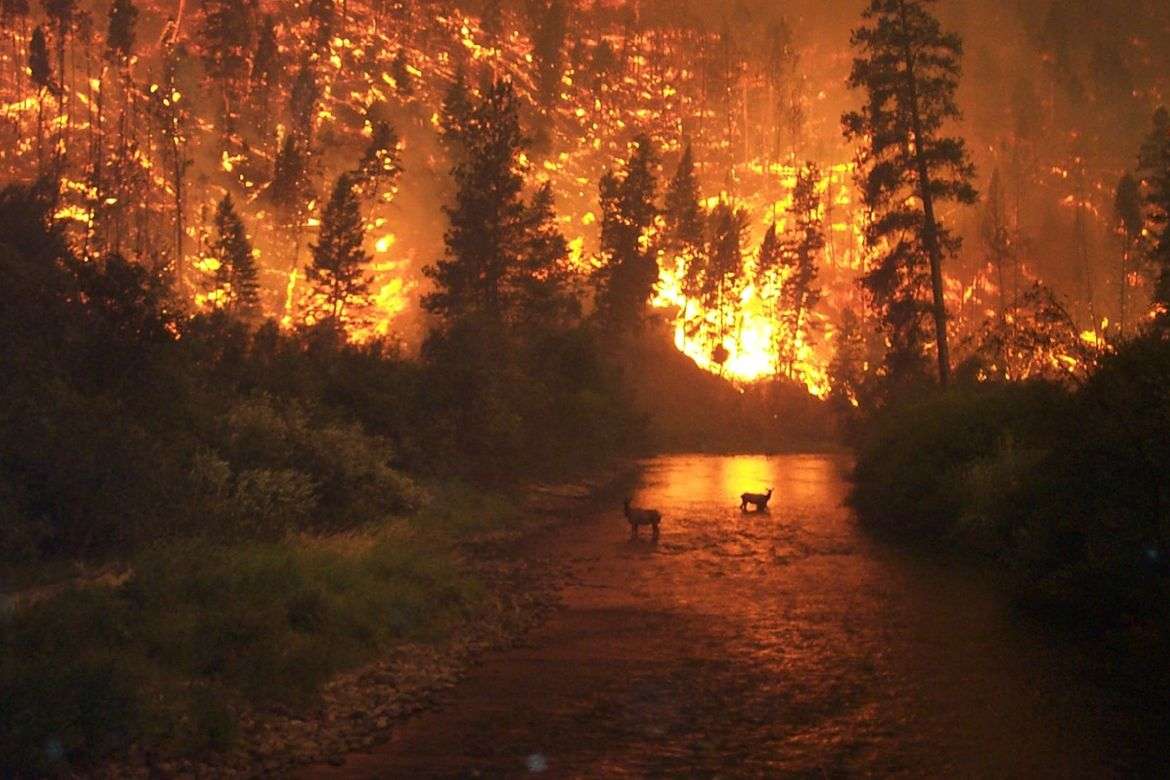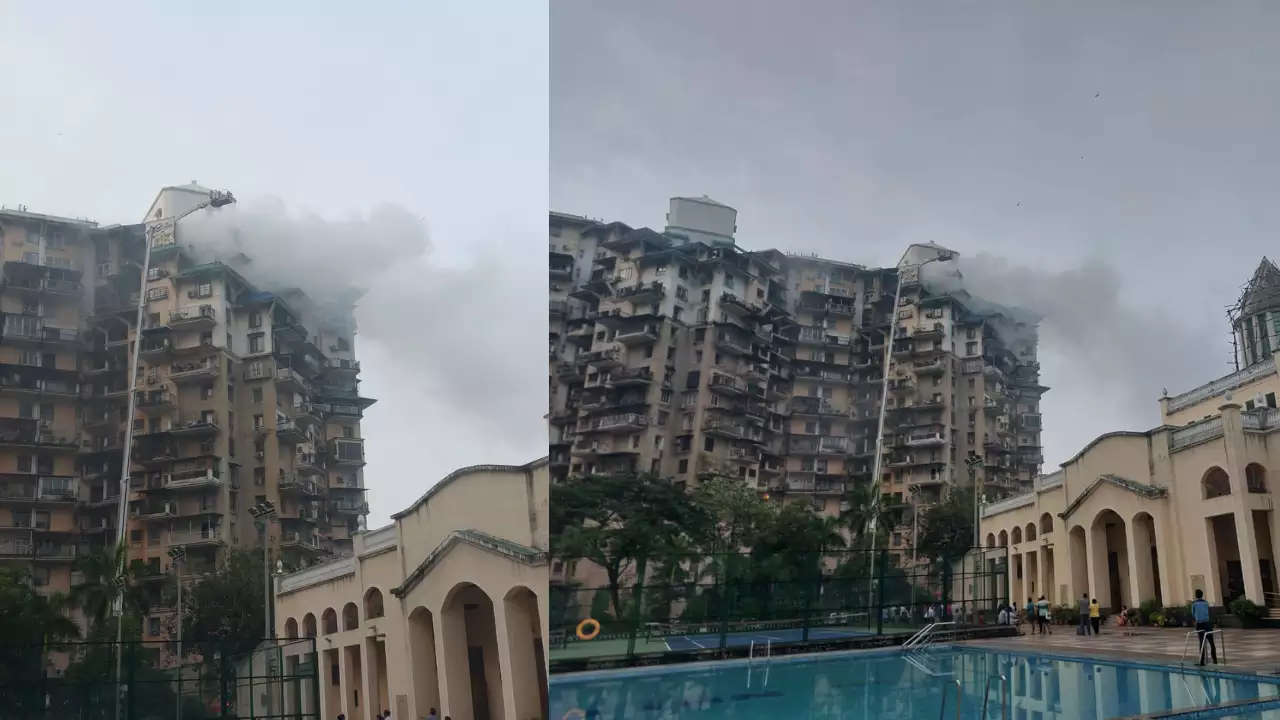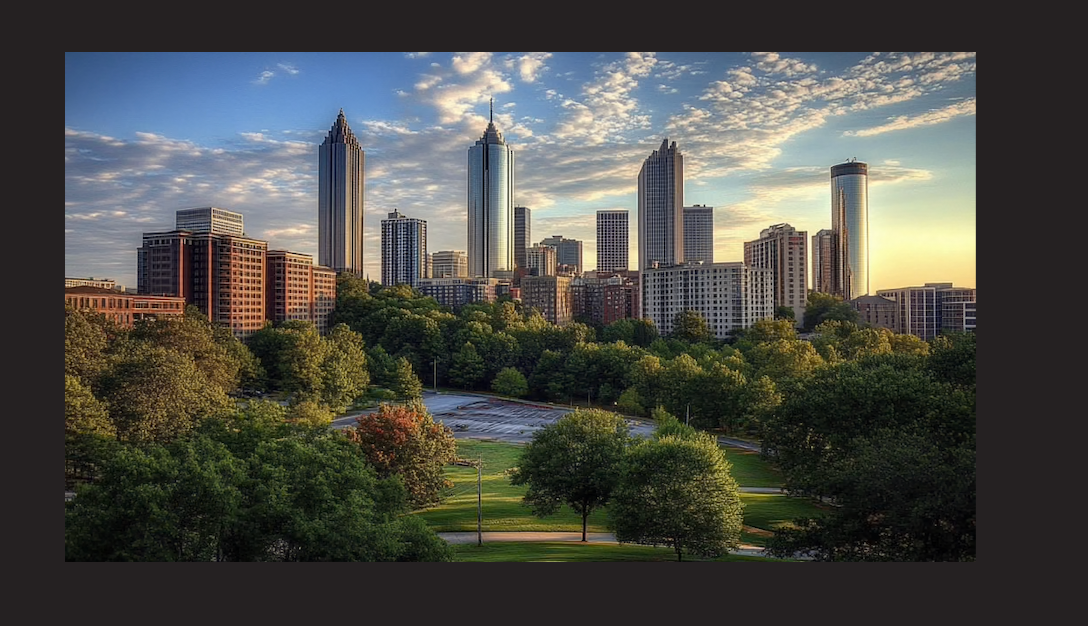The floods began after torrential rains for about seven days last week, mainly in the towns of San Luis del Palmar and Ituzaingó, near the provincial capital some 800 kilometers (497 miles) north of Buenos Aires.
Argentina’s northeastern province of Corrientes has been hit by widespread floods, leaving cattle fields under water and inundating roadways, just months after widespread wildfires ripped through the region and burned important wetlands, a report in The Peninsula, Qatar, says.
The floods began after torrential rains for about seven days last week, mainly in the towns of San Luis del Palmar and Ituzaingó, near the provincial capital some 800 kilometers (497 miles) north of Buenos Aires.
Images showed areas covered in water that had been scorched and engulfed by fire amid a prolonged drought at the start of the year. At many places, animals that fled flames were forced to swim through the deluge.
“We came out of the fire and a month later a flood hit us,” Orlando Bertoni, head of Civil Defence Operations of Corrientes, told Reuters. Still, he added, the water was a relief despite road closures and having to evacuate some residents.
“It is welcome because there was a lack of water. But we have to be careful that it does not continue to rain. The big problem was the fire, which scorched everything, left everything burned. This rain has brought some relief.”
The heavy rains of some 500 millimeters in a few days did not affect the provincial capital badly due to better drainage, but caused flooding in fields and rural towns, where streams overflowed their banks on their way to the mighty Parana River.
“It is welcome because there was a lack of water. But we have to be careful that it does not continue to rain. The big problem was the fire, which scorched everything, left everything burned. This rain has brought some relief.”
Earlier, the wildfires that devastated the province from January to March affected more than 1 million hectares, leaving millions of dollars in losses, damaging protected plant and animal wildlife in Iberá National Park, an important wetland.
“Where we had the area most affected by the fires, we’ve now had loads of rain,” Bertoni added.
“The water is running away, it is draining and it is slowly going down,” Daniel Bertorello, commander of the Corrientes Volunteer Firefighters, told Reuters. “Hopefully the beautiful weather continues.”
********************************************************************
Readers
These are extraordinary times. All of us have to rely on high-impact, trustworthy journalism. And this is especially true of the Indian Diaspora. Members of the Indian community overseas cannot be fed with inaccurate news.
Pravasi Samwad is a venture that has no shareholders. It is the result of an impassioned initiative of a handful of Indian journalists spread around the world. We have taken the small step forward with the pledge to provide news with accuracy, free from political and commercial influence. Our aim is to keep you, our readers, informed about developments at ‘home’ and across the world that affect you.
Please help us to keep our journalism independent and free.
In these difficult times, to run a news website requires finances. While every contribution, big or small, will makes a difference, we request our readers to put us in touch with advertisers worldwide. It will be a great help.
For more information: pravasisamwad00@gmail.com











